South Africa riots: At least 117 killed, over 2,000 arrested amid worst violence in decades
The chaos erupted following the imprisonment of former President Jacob Zuma.
LONDON and PRETORIA -- At least 117 people have been killed in ongoing riots across South Africa despite the efforts of heavily outnumbered authorities to quell violent unrest sparked by the imprisonment of former President Jacob Zuma.
South Africa's acting minister in the presidency, Khumbudzo Ntshavheni, said in a statement Thursday that the death toll now stands at 91 in Zuma's home province of KwaZulu-Natal and 26 in the economic hub of Gauteng province. An additional six people were found dead on the roof of a mall in Thembisa township in Gauteng province, and the South African Police Service has opened an investigation to determine whether their deaths were related to the riots, according to Ntshavheni.
The South African Police Service said in a statement Tuesday that many fatalities occurred during "stampedes" as scores of people looted food, liquor, clothes and electrical appliances from shops in poor areas. Other deaths were caused by explosions when people tried to break into ATMs as well as shootings, according to police.
At least one police officer was killed in an attack on law enforcement, while seven others were injured responding to the riots, police said.
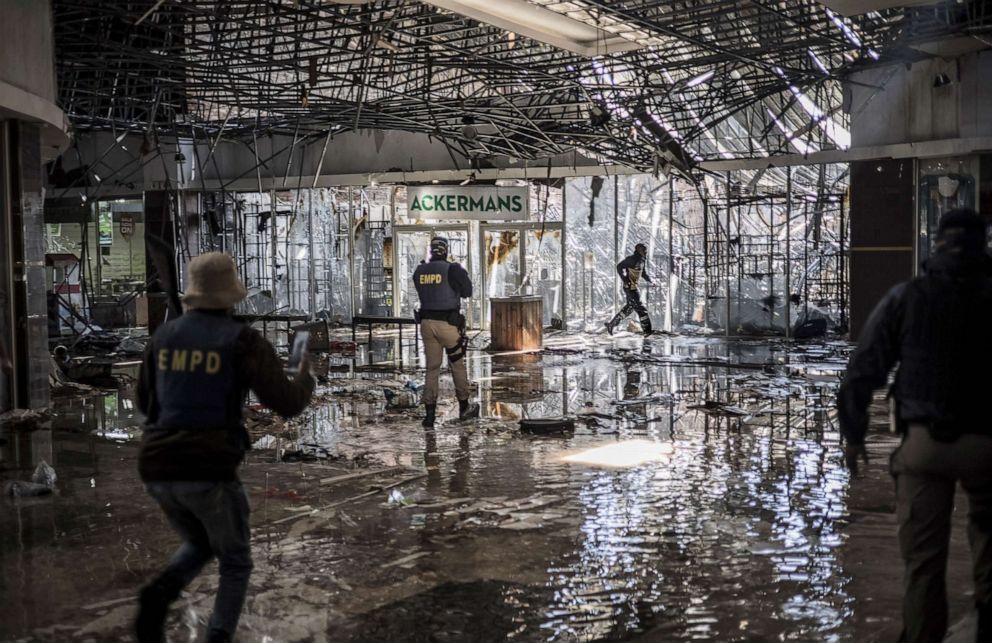
So far, 2,203 people have been arrested, according to Ntshavheni. But the chaos has continued in some areas and officials are "concerned about the economic impact of the violence, looting and destruction of infrastructure," she said.
"Over the past few days, the main routes have been blocked by protesters with stones and other dangerous items," Ntshavheni said in the statement Thursday, noting that such activities impact supply chains and the movement of key goods throughout the country.
"We wish to address those who are still undertaking the road blockage to desist from doing so because it is the poor, vulnerable and marginalized who will suffer as a result of their actions," she added. "The impact of the looter's actions will be felt more by the poor and middle class as many people stand a chance of losing their livelihoods."
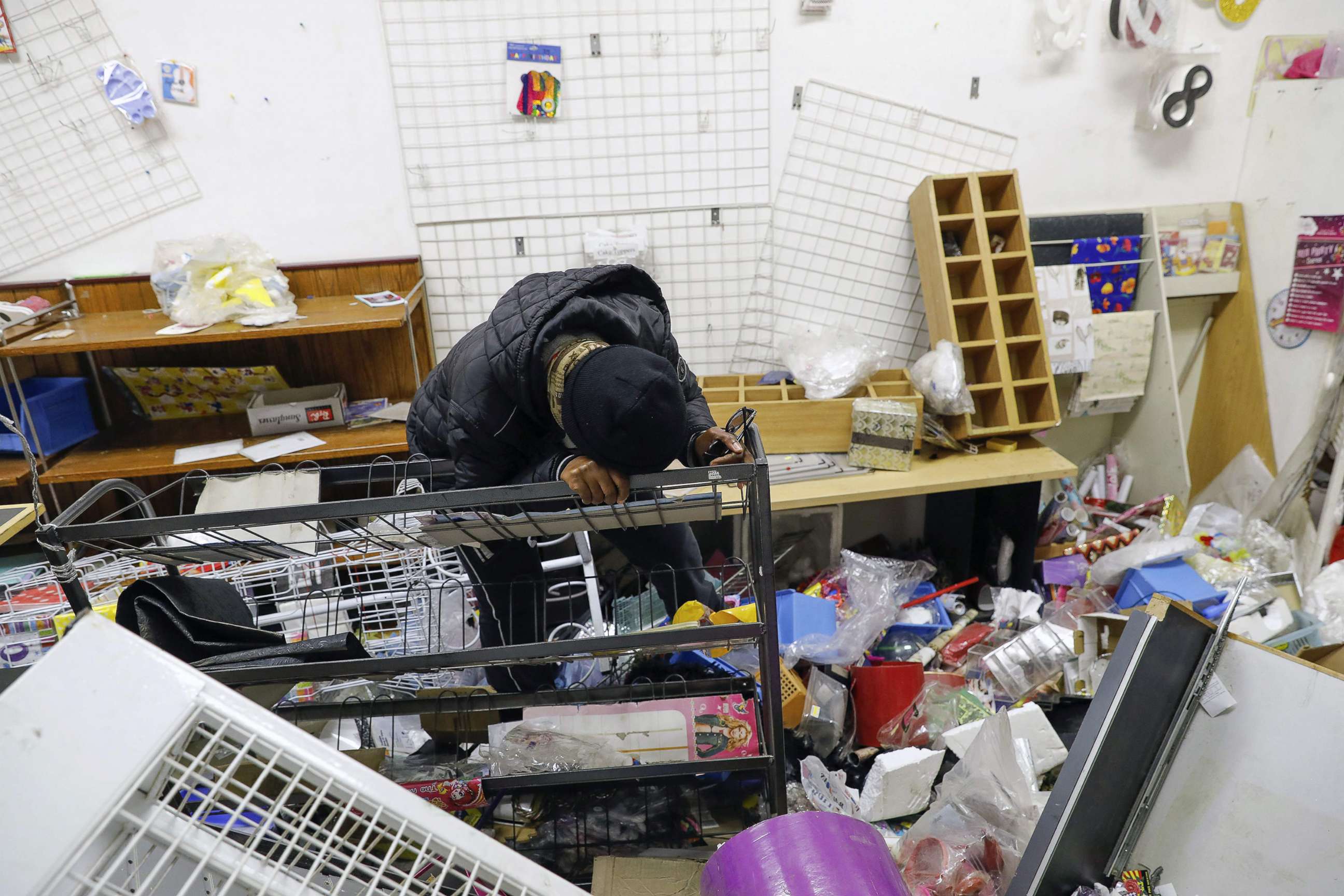
The South African Police Service is providing armed escorts for the transportation of critical supplies, such as food, fuel, medicine and oxygen, according to Ntshavheni.
There were also reports of clashes between looters and residents, with some members of the community brandishing firearms or other weapons "in an apparent retaliation against perpetrators of the public violence," Ntshavheni said.
"We don't want a situation where members of the public are at logger-heads with the law after such a noble effort," she added.
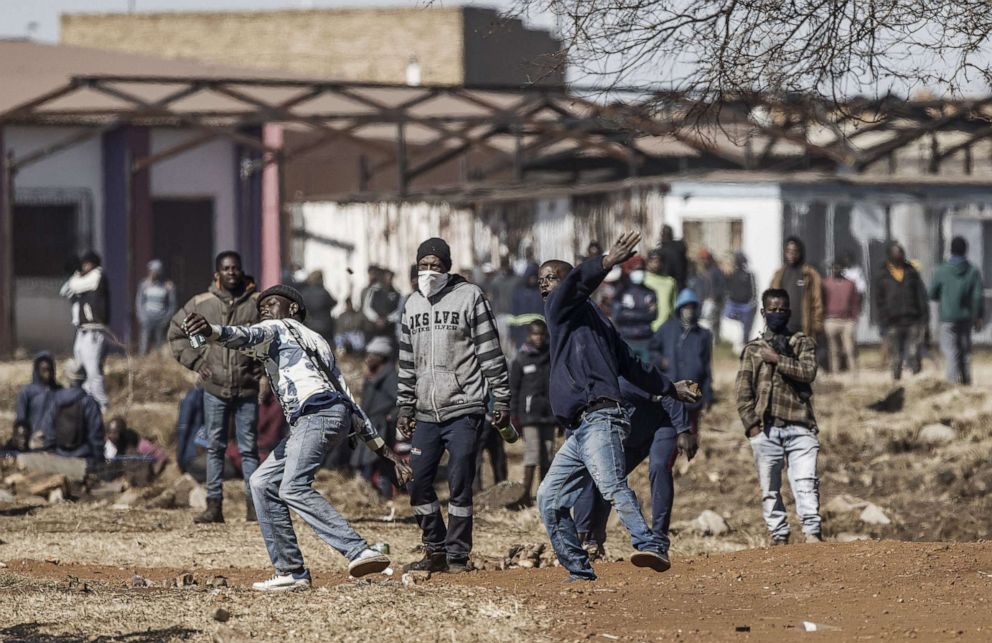
Ntshavheni noted that the situation in Gauteng province is now "largely calm," while KwaZulu-Natal province "remains volatile but much improved towards stability." She attributed the improved situation to the additional boots on the ground in areas identified as potential "hotspots."
The South African Police Service said it has recalled officers from leave and rest days, while the South African National Defence Force has deployed thousands soldiers to assist overstretched local law enforcement agencies.
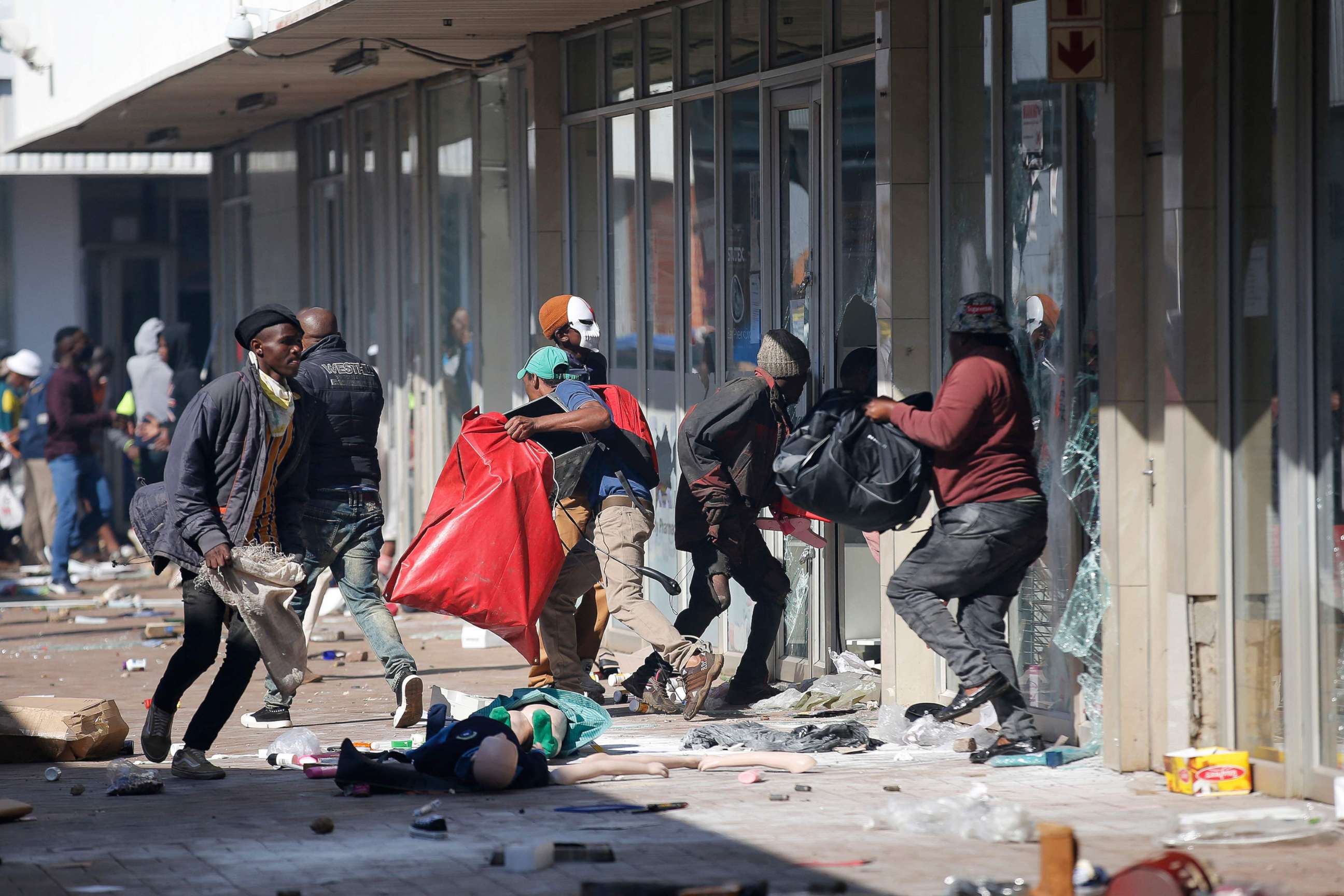
South African President Cyril Ramaphosa has vowed to "restore calm and order," describing the unrest as the worst the country has witnessed since the 1990s, before the end of the apartheid regime,
"Over the past few days and nights, there have been acts of public violence of a kind rarely seen in the history of our democracy," Ramaphosa said in a televised address to the nation on Monday evening. "Let me be clear: We will take action to protect every person in this country against the threat of violence, intimidation, theft and looting. We will not hesitate to arrest and prosecute those who perpetrate these actions and will ensure that they face the full might of our law."
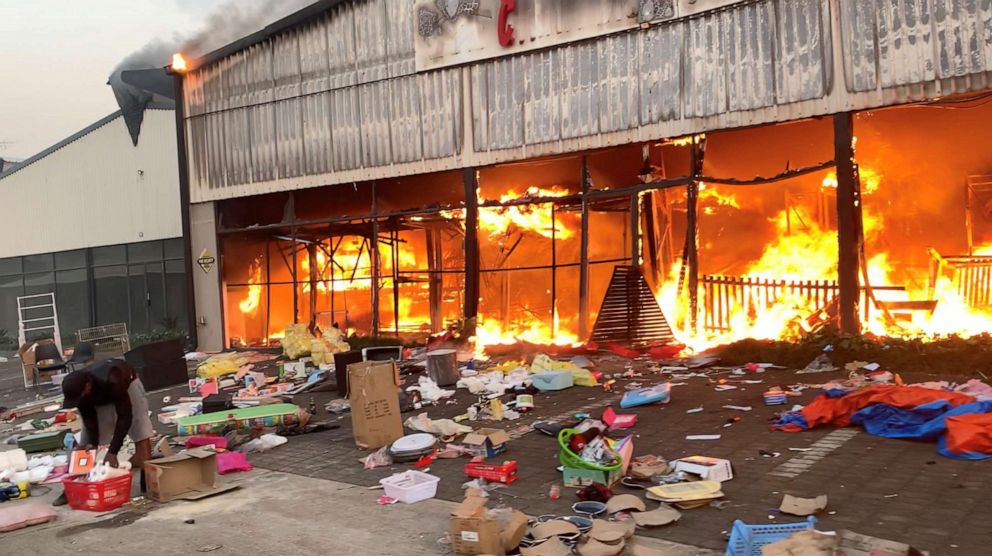
The lawlessness has disrupted South Africa's COVID-19 vaccination program, with some clinics forced to close, which Ramaphosa warned will have "lasting effects on our ability to consolidate some of the progress we were already witnessing in our economic recovery." Vaccine shots are urgently needed in the country, which -- along with other nations in Africa -- is fighting a new wave of COVID-19 infections. The South African government recently reimposed and extended tight restrictions, including a nightly nationwide curfew, school closures, a ban on gatherings and limits on alcohol sales.
Violence and unrest has gripped parts of South Africa since Zuma turned himself in to police on July 7 to begin his 15-month jail term for contempt of court. South Africa's highest court handed down the sentence after Zuma failed to appear before an inquiry examining corruption allegations during the nine years that he served as president. Zuma has maintained his innocence, saying he's the victim of a politically motivated witch hunt, and his supporters took to the streets last week. But the protests appear to have reawakened deep-seated grievances over persistent poverty, unemployment and inequality, some 27 years after apartheid ended.
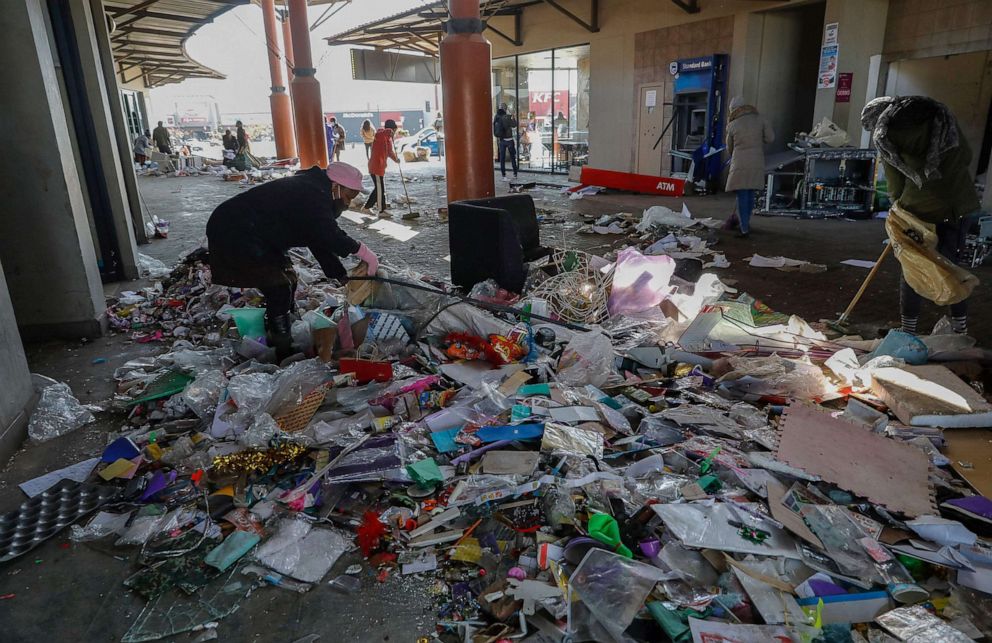
Following layoffs and an economic downturn from the coronavirus pandemic, South Africa's unemployment rate stands at a record high of 32.6% and is even higher among the youth, at 46.3%, according to official numbers released in June by the national statistical service. Meanwhile, more than half of the country's 60 million people were living in poverty last year, according to data collected by the World Bank Group.
"There is no grievance, nor any political cause, that can justify the violence and destruction that we have seen in parts of KwaZulu-Natal and Gauteng," Ramaphosa said. "The path of violence, of looting and anarchy, leads only to more violence and devastation. It leads to more poverty, more unemployment, and more loss of innocent life. This is not who we are as a people."




